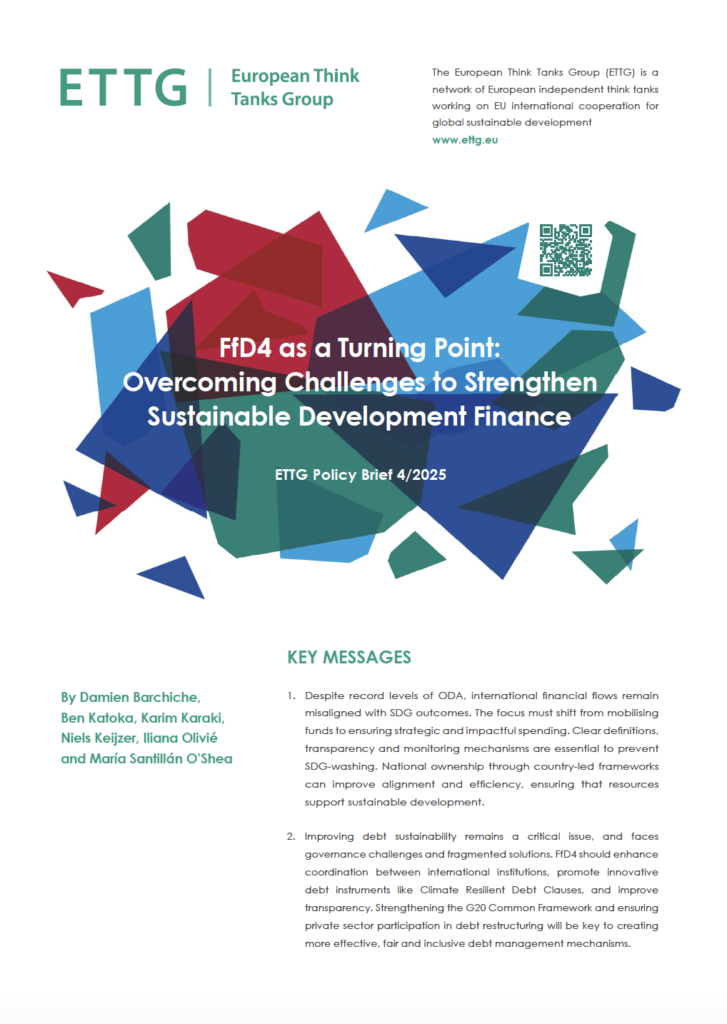Our latest policy brief entitled “FfD4 as a Turning Point: Overcoming Challenges to Strengthen Sustainable Development Finance” examines critical pathways to reform global development financing mechanisms, analyzing key opportunities presented by the Fourth UN Conference on Financing for Development (FfD4) and proposing concrete actions to enhance sustainable development finance.
Authored by: By Damien Barchiche (IDDRI), Ben Katoka (IDDRI), Karim Karaki (ECDPM), Niels Keijzer (IDOS), Iliana Olivié (ETTG, Elcano Royal Institute) and María Santillán O’Shea (Elcano Royal Institute)
Key Takeaways include:
- The analysis highlights that despite reaching record Official Development Assistance (ODA) levels, international financial flows remain poorly aligned with Sustainable Development Goals (SDGs). The research emphasises the urgent need to shift focus from simple fund mobilization to ensuring strategic allocation and impact, with robust mechanisms to prevent SDG-washing through enhanced transparency and country-led frameworks.
- The study identifies debt sustainability as a critical challenge facing developing nations, complicated by fragmented governance structures and inadequate coordination. It advocates for strengthening the G20 Common Framework and promoting innovative solutions like Climate Resilient Debt Clauses, while ensuring meaningful private sector participation in debt restructuring processes.
- The research underscores the fundamental importance of domestic resource mobilization, particularly in African nations where tax bases remain narrow and illicit financial flows persist. It emphasizes the need for enhanced capacity-building, improved tax systems, and stronger international cooperation on tax governance, supported by digital solutions and transparency measures.
- The brief calls for comprehensive reform of Multilateral Development Banks (MDBs) and Public Development Banks (PDBs) to optimize their effectiveness, advocating for enhanced coordination, streamlined procedures, and expanded local currency financing options. It emphasizes the importance of realistic, actionable reforms that align with shareholder interests while maximizing development impact.
- The analysis emphasises the critical need for a robust monitoring framework within FfD4, integrating multiple institutions into a coherent oversight mechanism. It advocates for strengthened peer review processes and enhanced data transparency to ensure effective tracking of commitments and outcomes.
This Policy Brief reflects ongoing ETTG work on FfD4 preparations in the framework of a partnership with the Agence Française de Développement (AFD) aimed at offering concrete recommendations for transforming global development finance mechanisms and strengthening sustainable development outcomes.





